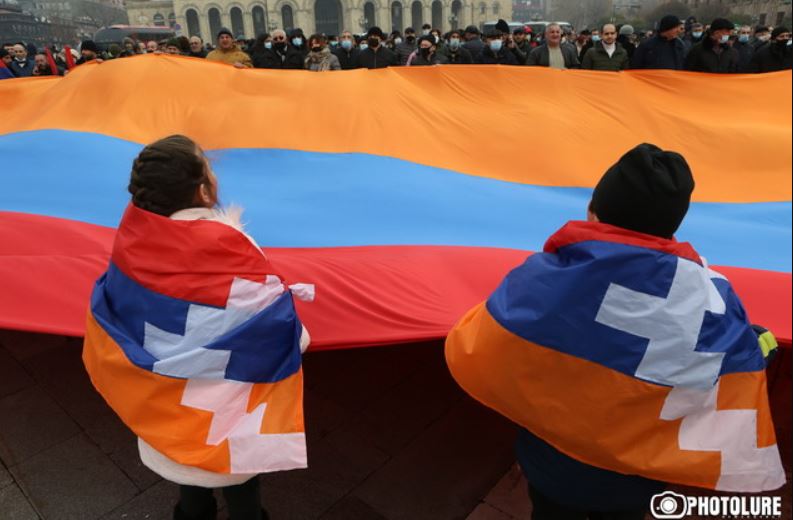Among the citizens of Armenia, there is a significant layer that seriously claims that “People from Karabakh are not Armenians.” I am not familiar with the sociological surveys conducted in that direction, but I assume that at least 25 percent of Armenians think so. Some people put a “scientific” basis under that absurd claim: “they lived under the Turks so much that they became Turks themselves.”
If we try to interpret that accusation without emotions, we can record that the vast majority of us living here in the territory of Armenia lived “under” the Turks, Russians, or Persians, but, fortunately, they preserved their national identity.
This also partially applies to the Armenians living in Artsakh, with the reservation that in different historical periods the Karabakh principalities had more or less autonomy, in contrast to other Armenian-inhabited territories. climbing mountains to collect taxes or to establish one’s own order is quite a difficult task.
The immediate socio-political reason for not considering the people of Artsakh as Armenians is clear. After 1998, over 20 years, most of the people occupying favorable positions in government positions and business were from Artsakh. It is enough to remember that at the beginning of that period, in the center of Yerevan, the most luxurious cars of that time with NKR license plates were driving about with gross traffic violations. Perhaps the number of unexpectedly rich and official Artsakh residents was exaggerated by the opposition propaganda. But it would not be fair to say that the propaganda was entirely unfounded.
Read also
The majority of people, not only in Armenia, are not capable of deep analysis, react to initial emotional impulses and easily mix wet with dry. This is how the “demonized” image of the people of Artsakh was created, the private expression of which is to consider those representatives of our people as non-Armenian.
How can we overcome this dangerous gap? Relying on the state in this matter is not realistic. The current government, under which most of Artsakh was transferred to the enemy, is interested in the above-described mutilated, out-of-truth perception, and perhaps to some extent they contribute to the spread of this myth. But there is also a civil society, there should be, at least. Not the non-governmental organizations that receive grants to defend this or that political line, but the forms of self-organization of citizens that advance the interests of specific groups.
I think it is quite possible to find several organizations that will take one class of Armenian schools to Artsakh once a year. Why do we need it? It is necessary to break prejudices due to ignorance. So that the children of Shirak, Lori, Tavush, and Yerevan, and through them, their parents know (if they “didn’t know”) that there are people living there who speak Armenian, that the monasteries in Artsakh are the same Armenian monasteries.
That many of the individuals who make up the glory of our culture and science are from Artsakh. At first glance, it appears to be a purely educational issue. But in reality it is also a matter of security and, as unexpected as it sounds, of state building. Without the spirit of national unity, it is not possible to build an Armenian state.
Aram Abrahamyan






















































